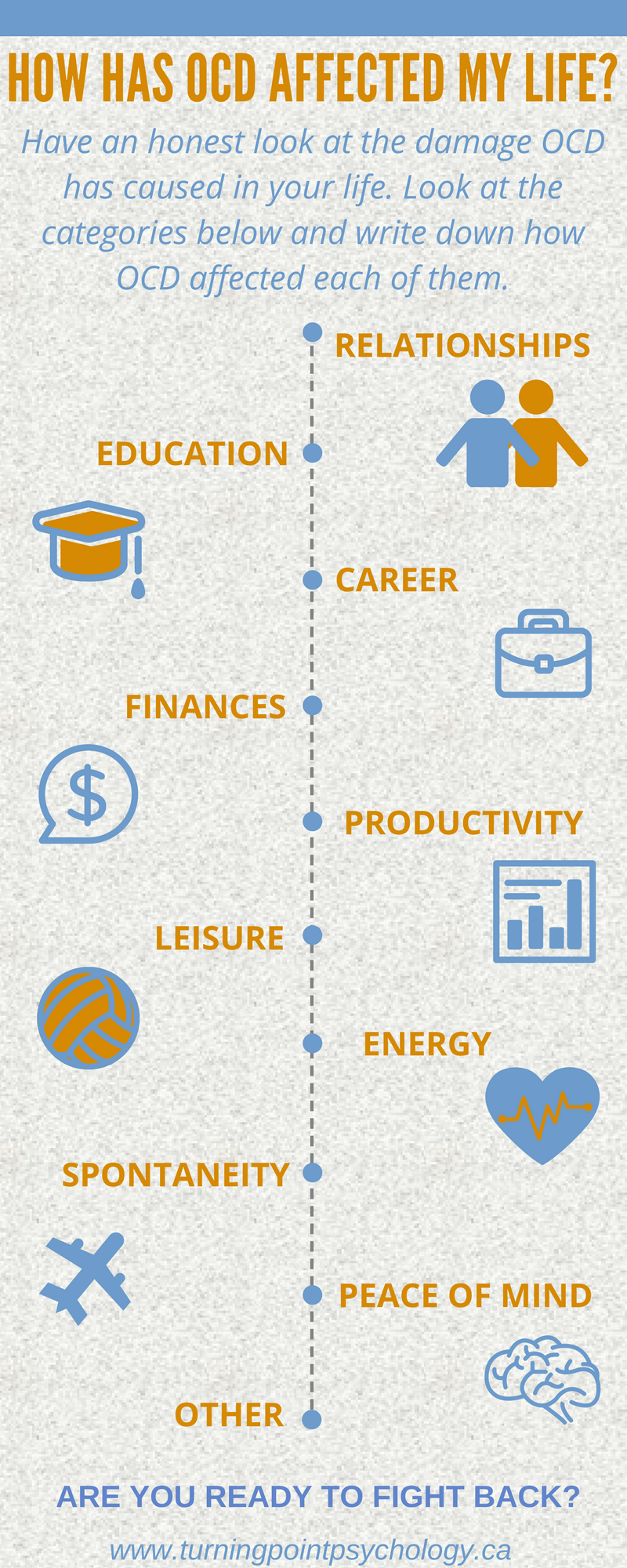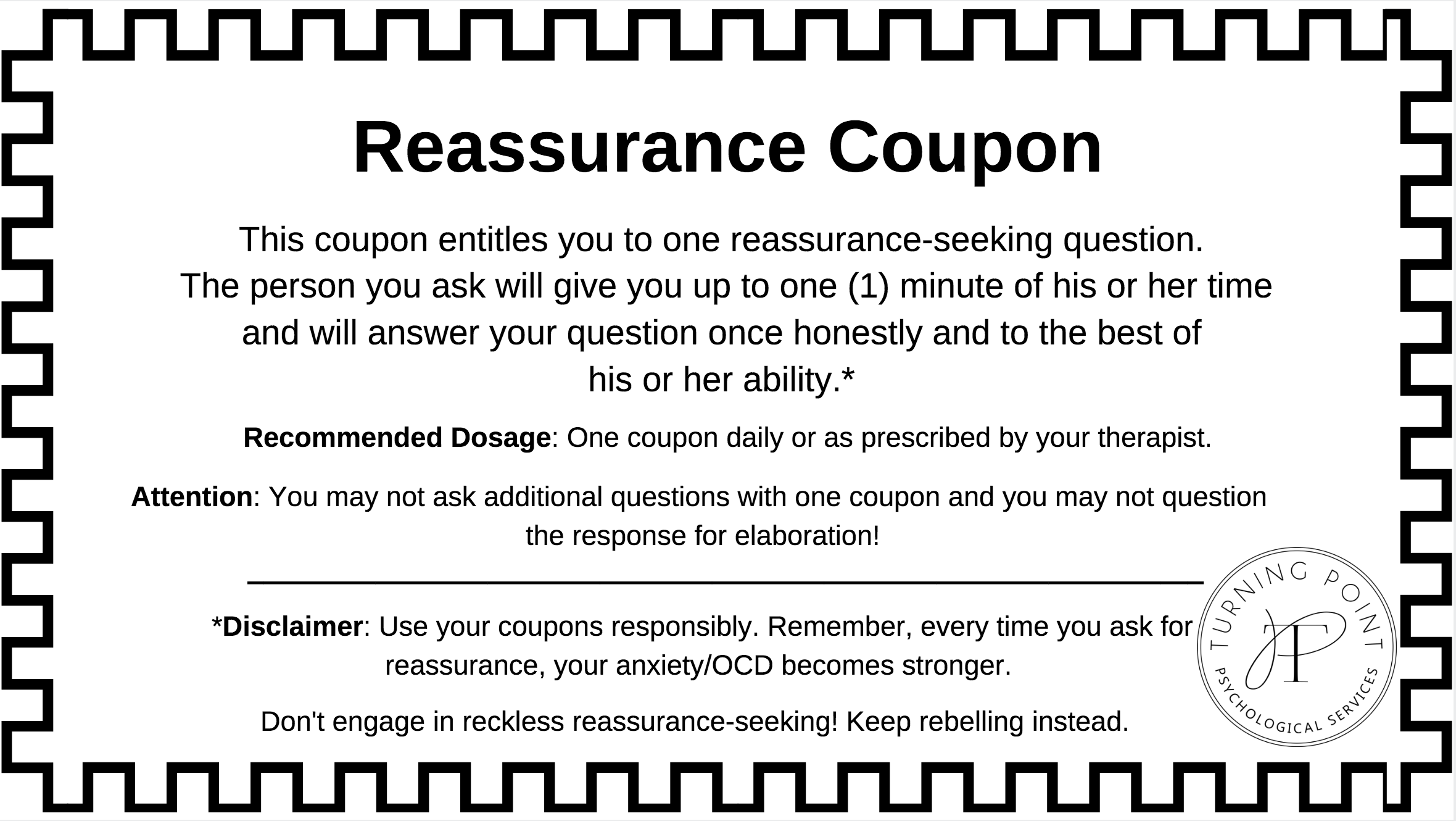Illness Anxiety and How to Overcome It
Photo by: Martin Brosyv / Unsplash
What is Illness Anxiety?
Illness anxiety (formerly known as hypochondriasis and health anxiety) is a preoccupation with having or getting a serious disorder despite having no symptoms or only benign symptoms.
People suffering from illness anxiety engage in behaviours aimed to reduce the fear/anxiety of becoming ill or to obtain certainty that they are healthy. Such behaviours include checking and scanning their body for potential symptoms, going to numerous medical appointments (or, in other cases, avoiding doctors and medical appointments), taking too many medications, as well as repeatedly asking for reassurance that they are not ill. This preoccupation gradually takes over a person's life and severely interferes with their daily functioning.
No amount of medical reassurance or negative test results relieves their anxiety. Sometimes the sufferers become even more concerned after being reassured by a doctor as they contemplate the possibility of the doctor not taking them seriously, not being knowledgeable enough, or mixing up the medical test results.
There are two types of illness anxiety: care-seeking and care-avoidant. People often present with a mixture of the two types – switching between excessively seeking medical care and information at certain times, and avoiding it at other times.
An illness anxiety sufferer’s fear can shift between a fear of acquiring a disease or a fear of having an actual disease.
Even though the DSM-5 lists illness anxiety in the Somatic Symptom and Related Disorders category, its presentation and treatment are very similar to the presentation and treatment of Obsessive-Compulsive Disorder (OCD).
“ The more checking one engages in, the worse the person feels; the more reassurance is sought, the less reassured the person becomes. ”
In the case of illness anxiety, the intrusive, unwanted thoughts about having a disease are the obsessions, while the behaviours aimed to reduce the anxiety are the compulsions. As with OCD, the more checking one engages in, the worse the person feels; the more reassurance is sought, the less reassured the person becomes.
Thoughts (Obsessions) that are Common in Illness Anxiety
“I may miss an important symptom.” This thought is related to two common OCD features – an inability to tolerate uncertainty, and an over-inflated sense of responsibility. People who have these thinking patterns feel that they have to do everything in their power to know for sure if they have the feared disorder. They also feel that they won’t be able to live with the thought that they are responsible for not catching the disorder in time.
“I have to be 100% certain that I don’t have a disorder.” Again, this is the endless and unattainable quest for absolute certainty.
“Doctors often miss serious disorders.” And: “I can never completely believe a doctor or test results because so many mistakes happen.“ This thought leads to endless doctors appointments, as well as going from one specialist to another and seeking second, third, and fourth medical opinions.
“If I feel concerned, then there must be a reason for it.“ This is a common thought related to perceiving feelings as facts.
“I should check every concerning symptom numerous times a day.” This one quickly gets out of control and the days are spent in never-ending checking.
Some more specific examples of illness anxiety thoughts:
- “This mole seems darker than it was yesterday. Surely, it’s melanoma!”
- “This is my second headache this month. I better Google brain tumour symptoms.”
- “My urine/saliva is a different colour today. What if I have internal bleeding?”
- “My doctor looked distracted at the last appointment. He could have missed the abnormal results of my tests. What if he didn’t listen to what I told him?”
- “The doctor paused for a second and looked at me. Does she suspect that I have something serious going on with my health?”
- “My doctor told me to get another test. She knows I'm gravely ill but doesn't want to tell me.”
- “I should get a second (third, fourth) medical opinion”
- “My doctor refused to refer me to do the test I requested. He doesn’t take my symptoms seriously and will for sure fail to catch this disorder until it’s too late. I better consult with another specialist.”
In addition to the common thoughts above, people with health anxiety often refuse to accept the fact that they have a psychological condition. They fear that if they accept that this is their main problem, they will lose their vigilance and may miss a “real” physical health problem.
“Your attempts to control or eliminate your discomfort just lead to the vicious cycle of intrusive thoughts and rituals. ”
Patterns that Reinforce Illness Anxiety
All-or-nothing thinking: Seeing things in black-and-white terms, such as, “I’m either healthy or seriously sick” or “I can only know for sure that I’m healthy if I have absolutely no uncomfortable bodily sensations.”
Catastrophizing: Attributing catastrophic consequences to minor things, for example, “If I have a symptom, it must indicate a horrible disease”, “I have a headache. This must be a brain tumor” or “A scratchy throat means I have throat cancer.”
Intolerance of uncertainty: Striving to obtain absolute certainty and refusing to accept that everything in our life is uncertain, for example, “I must be 100% sure that I’m healthy. If I am not 100% sure, that means I must be seriously ill. So, I’ll investigate until I achieve the feeling of 100% certainty.”
Emotional reasoning: Perceiving feelings as if they were facts, for example, “I feel that there may be something wrong with my health. Therefore, I must be ill.”
Unwillingness to Tolerate Discomfort: Feeling that the discomfort will never end, will be unbearable, it’s impossible to cope with it, and impossible to function unless the discomfort disappears.
Some people with illness anxiety start worrying about their health after a health-related negative experience. They may have watched a loved one have a serious illness or die, or they themselves may have had a serious disease, or, often, they may have witnessed a doctor making a mistake or missing a symptom.
Typical Illness Anxiety Behaviours (Compulsions)
- Repeatedly monitoring and checking the symptoms (which creates even more bodily sensations).
“The goal of the treatment is NOT to convince you that you are not sick but to help you change your relationship with anxiety and learn that you can tolerate the uncertainty and the fear of being responsible for missing a symptom. ”
- Asking family members to have a look at the symptoms.
- Asking questions about various possible symptoms and their meanings.
- Repeating the same symptom-related questions and asking for more information, and then going back and asking for even more information.
- Seeking endless reassurance related to medical symptoms.
- Frequently going to doctors' appointments, which often leads to doctors’ recommendations to monitor the symptoms, which further increases the checking compulsions.
- Providing overly lengthy, detailed descriptions of symptoms during medical appointments, then worrying after noticing that the doctor became distracted and/or impatient.
- Frequently requesting unnecessary medical tests.
- Seeking second, third, and fourth opinions and trying to finally find a doctor that will agree with them.
- Asking other people which symptoms they consider "normal" and which ones would be a concern for them.
- Comparing their symptoms to other people’s symptoms.
- Excessive browsing illness-related information.
- Avoiding anything illness-related (doctors, hospitals, medical tests, medical information).
- Avoiding places where a contagious disease may be acquired (hospitals, waiting rooms, etc.) .
- Overly rigid health-related routines in terms of exercise, diet, and vitamins.
Illness Anxiety Treatment
The most effective treatment for illness anxiety is Cognitive Behavioural Therapy (CBT), specifically, Exposure with Response Prevention (ERP).
In our experience, CBT and ERP for illness anxiety are more effective when combined with Acceptance and Commitment Therapy (ACT). ACT helps people change their relationship with anxiety and discomfort and make conscious choices that allow them to take steps toward a rich and meaningful life, without succumbing to illness anxiety’s demands.
As with other types of OCD, the treatment focuses on confronting the thoughts and situations that trigger anxiety while not engaging in behaviours aimed at reducing anxiety.
The goal of the treatment is NOT to convince you that you are not sick but to help you change your relationship with anxiety and learn that you can tolerate the uncertainty and the fear of being responsible for missing a symptom.
What You Can Start Doing Today to Overcome Your Illness Anxiety
“Absolute certainty is an illusion. It doesn’t exist. ”
If you have illness anxiety, you know that all the behaviours mentioned above temporarily reduce your anxiety, but then it keeps coming back and becomes even stronger. Furthermore, over time, you have probably come to need even more of these rituals to experience relief. Every time you do a compulsion (a behaviour aimed at reducing your distress), you are feeding your anxiety and making it stronger.
Your attempts to control or eliminate your discomfort lead to a vicious cycle of intrusive thoughts and rituals. As you experience a temporary reduction of distress when you act on the compulsions, you learn that you are unable to cope with your anxiety unless you engage in the ritual. This, by itself, perpetuates more anxiety and leads to even more compulsions.
Here are Six Steps to Dealing with Illness Anxiety:
1. Write a list of what you have sacrificed to illness anxiety so far. Be as specific as possible. How has it affected your relationships? Your productivity? Your ability to have fun? Your finances?
It may take you a few days to complete the list as you may not be immediately aware of all the areas of your life that have been affected.
Review your list and reflect on whether the price that you are paying for your seeking health-related certainty is too high. Are you willing to start rebelling against your illness anxiety to reclaim your life?
The list is a reminder that it is not the feared disease that is ruining your life; it’s your illness anxiety that is currently causing your suffering.
Keep the list handy and refer to it for motivation when you practice the strategies below.
2. Write a list of all the things you have been doing to try and reduce your anxiety. Try to write down as many examples as possible. Refer to the “Typical Illness Anxiety Behaviours” section above for help.
Again, it may take you several days to identify most of the external and internal compulsions that you have been doing.
Now, assess whether any of these compulsions have brought you long-term relief from your illness anxiety.
3. Eliminate, or at least significantly reduce your rituals and habits. Will it be easy? Of course not. You know that the urge to check or ask for reassurance is overwhelming. You also know that the sense of terror and urgency you experience when you feel you may get the dreaded disease is difficult to endure. But, nevertheless, with practice, it is possible to reduce illness anxiety behaviours. Moreover, as you continue reducing the rituals, you will start experiencing a sense of mastery, well-being, and pride as illness anxiety obsessions will push you around less and less.
You can eliminate the behaviours in a cold-turkey approach or gradually. It’s really up to you.
If you decide to proceed slowly, you can start by reducing the frequency of rituals by a third every week or every couple of weeks until you stop doing them completely.
Some examples:
- If you currently check your symptom 30 times a day, start by reducing the checking to 20 times. You can put checkmarks or numbers in a Notes app on your phone to count the checking.
- Talk to your doctor and explain that you are trying to overcome your illness anxiety. Ask the doctor for guidelines on how many visits a year a person with your health history typically needs. Then, start working toward that number of visits.
- Reduce the number of times per week (or per day) you ask for reassurance. You can print out these reassurance coupons and limit yourself to eight coupons per week. Please read the instructions for using the coupons here.
- Cut out all health-related internet searches.
Of course, every single illness anxiety sufferer will wonder, “But what if it’s a slippery slope? What if in the course of trying to overcome my illness anxiety, I do miss an important symptom? What if I’m actually right that I’m sick?” The answer is -- this is always a possibility and this is a risk that you have to take to reclaim your life.
When you question yourself like this, review your list of things that you have lost to your illness anxiety. Are you willing to continue giving them up? If not, you have to accept that life is not risk-free. To help yourself with that, proceed with the next step and …
4. Challenge your need to have certainty (This is the intolerance of uncertainty thinking trap that was mentioned earlier)
The usual pattern of coping with uncertainty is trying to achieve certainty by all means, such as attending doctors’ appointments, checking and monitoring the symptoms, asking for medical tests, seeking reassurance, etc. Unfortunately, as you learned the hard way, this sense of certainty that you are after is ever elusive and, even if you feel some relief after being reassured, it is short-lived.
A much more effective strategy is to work on increasing your tolerance of uncertainty. After all, everything in life is uncertain. Absolute certainty is an illusion. It doesn’t exist.
We accept the uncertainty and the risks associated with it every time we drive, cross bridges, take elevators, eat in restaurants, and send our kids to school. In order to overcome illness anxiety, it is crucial to accept health-related uncertainty as well. Read more about tolerating uncertainty here.
5. Learn strategies to disengage from intrusive, health-related thoughts as you go about your day. If you have an intrusive fear-driven thought, say, “I’m noticing that I’m having a thought that this mole may be cancerous.” The anxiety may or may not subside. It doesn’t matter if it does or not – this is not the goal here. The goal is for you to take a tiny step away from the thought instead of immediately and impulsively reacting to it.
Other disengagement strategies:
- Imagine that the thought is an annoying call by a telemarketer, which you can decide not to answer.
- Say to yourself, “Oh, this is the ‘cancer story’ again.”
- Imagine the thought being written in different fonts on a computer screen.
- Thank your mind for trying to be helpful and refocus on what you’ve been doing.
“Unfortunately, as you learned the hard way, this sense of certainty that you are after is ever elusive and, even if you feel some relief after being reassured, it is short-lived. ”
Important note: Disengaging or unhooking from thoughts does not equal trying to stop them. Actually, it is the opposite of thought-stopping. When you try to get rid of thoughts, this implies that they are dangerous and you need to stop them. But disengaging means allowing the thoughts to come and go without trying to do a thing about them.
6. Find a radically new way to respond to anxiety. You have tried many methods to reduce your distress by engaging in compulsions, and you know it doesn’t work in the long run. Instead of continuing to play tug-of-war with your distress, let go of the rope -- change your relationship with distress by accepting it without trying to get rid of it.
Stay with your anxiety or distress. Don’t try to push it away. Instead, let it come and go on its own. Practice it willingly. Examine your thoughts and feelings that accompany distress with curiosity.
When you become more used to not pushing your anxiety away, up the ante and start facing your anxiety on purpose. Think the dreaded thought (such as, “I may miss a symptom of cancer and it will then be too late to treat it”). Keep thinking this feared thought without resorting to any safety behaviours. This helps you learn that you can have the thought and do absolutely nothing about it.
If it’s specific places or situations that you are avoiding, then start facing them. Stop sanitizing everything, touch chairs in hospital emergency rooms, sit for an hour at a waiting room of a medical office, etc.
“As you continue reducing the rituals, you will start experiencing a sense of mastery, well-being, and pride as illness anxiety obsessions will push you around less and less. ”
In our clinic, we hand out clickers to our patients with an instruction to click every time they consciously choose to willingly increase and accept their anxiety. This is oftentimes a game-changer for anxiety or OCD sufferers as they learn to develop a playful attitude toward their intrusive scary thoughts and, thus, stop living their lives feeling controlled by their intrusive thoughts.
Do you suffer from illness anxiety? Have you recognized some obsessions and compulsions that you have? Share your story in the comments below!
If you enjoyed this article, follow us on Facebook for more great tips and resources!
Anna Prudovski is a Psychologist and the Clinical Director of Turning Point Psychological Services. She has a special interest in treating anxiety disorders and OCD, as well as working with parents.
Anna lives with her husband and children in Vaughan, Ontario. When she is not treating patients, supervising clinicians, teaching CBT, and attending professional workshops, Anna enjoys practicing yoga, going on hikes with her family, traveling, studying Ayurveda, and spending time with friends. Her favorite pastime is reading.
Related Posts
-
Anxiety
- Jul 5, 2020 Anxiety and Related Disorders
- Jun 2, 2020 Panic Disorder
- Jul 7, 2019 Social Anxiety Disorder: Facts, Symptoms, Treatment, and Tips for Managing It.
- Jun 6, 2019 10 Popular Therapy Strategies that Don’t Work for Bad Anxiety or OCD
- Mar 6, 2019 10 Tips for Dealing with Anxiety
- Feb 7, 2019 Don’t Feed the Dinosaurs or How to Face Your Anxiety
- Jan 22, 2019 Meet Anxiety. Anxiety: Part 1/7
- Dec 24, 2018 Why does Anxiety Interfere with My Life So Much? Anxiety: Part 2/7
- Dec 17, 2017 Anatomy and Physiology of Anxiety. Anxiety: Part 3/7
- Dec 3, 2017 Dealing with Anxiety Components One by One. Anxiety: Part 4/7
- Nov 12, 2017 The Discovery of Oz the Terrible. Anxiety: Part 5/7
- Oct 8, 2017 Meet Your New Best Friend: Uncertainty. Anxiety: Part 6/7
- Sep 10, 2017 Some More Strategies to Help You Deal With Anxiety and Worry. Anxiety: Part 7/7
-
OCD & Co.
- Nov 23, 2021 Acceptance and Commitment Therapy (ACT) for OCD
- Sep 13, 2021 Relationship OCD (ROCD) and Its Treatment
- Jul 12, 2021 Existential OCD
- Jun 8, 2021 Real Event OCD and 10 Steps to Getting Better
- Apr 17, 2021 Signs That You or Someone You Know May Have OCD and Not Realize It
- Dec 2, 2020 Don’t Argue With a Brain Glitch. (10 Do's and 5 Don'ts for Parents of Kids with OCD)
- Sep 25, 2020 Do I have OCD? 8 Surprising OCD Myths
- Aug 15, 2020 9 Surprising Things We Don’t Do When Treating OCD at Our Clinic
- May 21, 2020 Illness Anxiety and How to Overcome It
- Feb 21, 2020 OCD and Online Romance Scam
- Jun 6, 2019 10 Popular Therapy Strategies that Don’t Work for Bad Anxiety or OCD
- Nov 17, 2018 Is it Possible to Be “a Little OCD?”
- Oct 23, 2018 Defeating the (Seemingly) Indestructible OCD Hydra: 8 Effective Tricks to Deal with New Obsessions.
- Oct 22, 2018 OCD, is That You Again? How to Know if Your New Thought is OCD, and 6 Concrete OCD-Repelling Strategies for You to Start Practicing Right Away.
- Oct 21, 2018 Trich or treat? Are you secretly pulling your hair out? Trichotillomania and its Treatment
- Apr 26, 2017 Stepping Off the OCD Hamster Wheel. A Therapist's Recovery Journey
- Parenting
-
Psychology
- Aug 21, 2019 The Road to ‘Stuckness’ is Paved with Good Intentions
- Sep 4, 2018 Having Difficulty Making Decisions? This Subtle Shift in Your Perspective May Change the Way You Approach Decisions from Now On.
- Aug 17, 2018 A Gentleman in Moscow or How to Live Life
- Jul 1, 2018 Who Goes to Therapy? Myths Versus Reality: The Therapist’s Perspective
- May 1, 2018 Do you often ask this innocent question? Watch out – you may be at risk for depression, anxiety, and other disorders.
- Feb 3, 2018 An effective hack to instantly take the edge off a negative emotion














